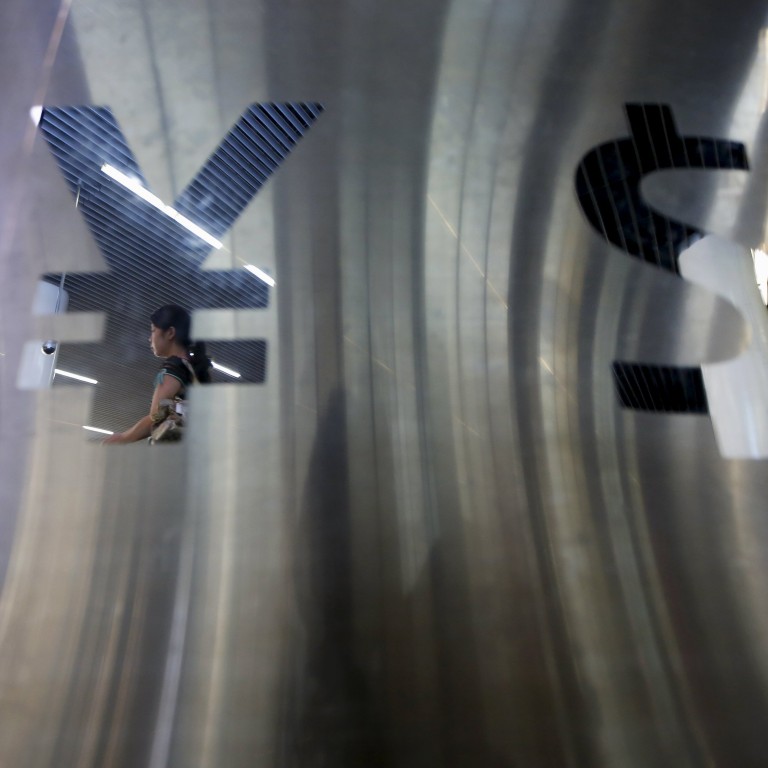
Cost of weaker yuan may outweigh benefits for China
A depreciating yuan might not bring Beijing the benefits it wants to see, but it could come at some cost to its domestic economy — speeding capital outflows that drain liquidity and heightening uncertainty, both of which could become bigger headaches for the country’s central bank than sluggish exports.
The immediate outcome of the Chinese authorities’ move to devaluate its currency is policy uncertainty, reckoned Credit Suisse analysts led by Neville Hill, while volatility, which has already knocked trillions of dollars off the country’s stock market, will be also injected to heavily-regulated currency markets.
“Given the opacity of policy decisions in China we can’t be sure whether this is the start of a pronounced and prolonged depreciation in the yuan; whether the policy action reflects a material worsening in economic conditions in China not yet evident in the data, or whether this precedes a more concerted policy stimulus in China,” Hill wrote in a note to clients.
A raft of China economic figures released last week point to renewed deterioration in its economy, with exports, fixed asset investment and industrial production growth all falling short of market expectations. The weakness, described by Credit Suisse to be “substantially worse than global demand condition,” is commonly seen as a primary trigger for Beijing’s surprising move.
Credit Suisse cautioned the impact of a softening yuan on spurring China’s exports is “limited.” It predicted Chinese economic indicators in the near term will continue to disappoint, “feeding into fundamental weakness concerns.”
To Beijing, a capital flight driven by yuan depreciation may be a far bigger threat than slumping exports, Credit Suisse analyst said. Money has been leaving China for five-straight quarters, reaching some US$520 billion. That has erased all previous capital inflows back to 2011, when China’s downshift began, according to estimates by JPMorgan.
Accelerating capital outflows are interpreted by many as a sign of dwindling confidence, and tightening liquidity will make it harder for domestic firms to raise funds in an economy where initial public offering approvals have already been halted and, more importantly, hamper the People Bank of China’s own efforts to ease liquidity with aggressive rate cuts.
Daniel Rosen, a partner with New York-based Rhodium Group, raised the alarm, warning that capital outflows triggered by outsize yuan depreciation could ignite a crisis that is trickier for Beijing to tackle than the stock market turmoil.
“Depreciation makes domestic credit conditions even more stressful, and raises the burden on legions of firms with offshore debt payments to make,” Rosen argued.
Moving away from a decade-long yuan appreciation may also leave the markets mired in uncertainty that can be easily translated into volatility, according to Credit Suisse analysis. One of the most imminent would be in the forex market. As noted by China’s central bank in its statement, “the new currency regime will lead to potentially significant fluctuations in the exchange rate.”
“This sort of volatility will be with us for a while and perhaps worse,” said Linda Yueh, adjunct professor of economics with the London Business School.

